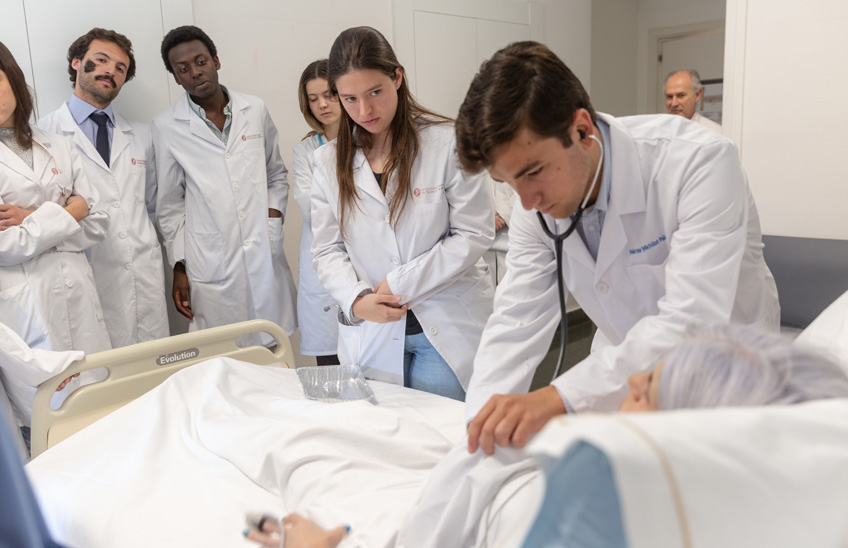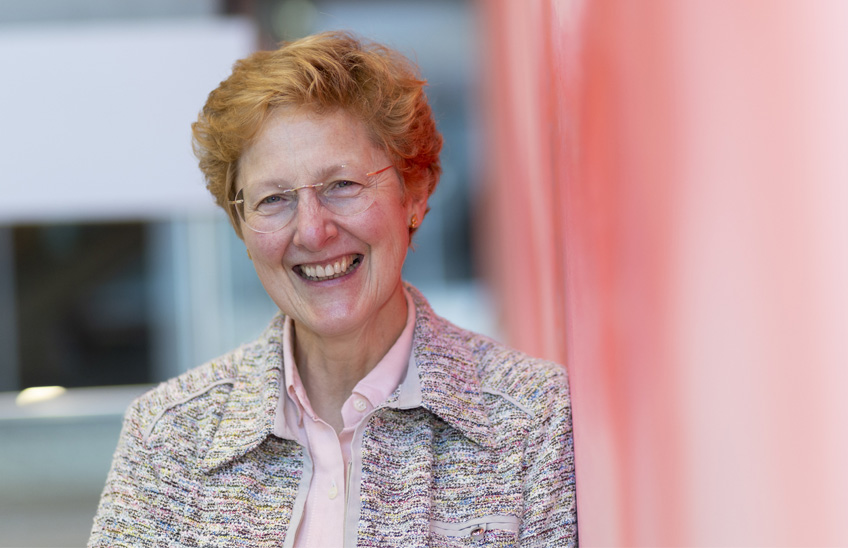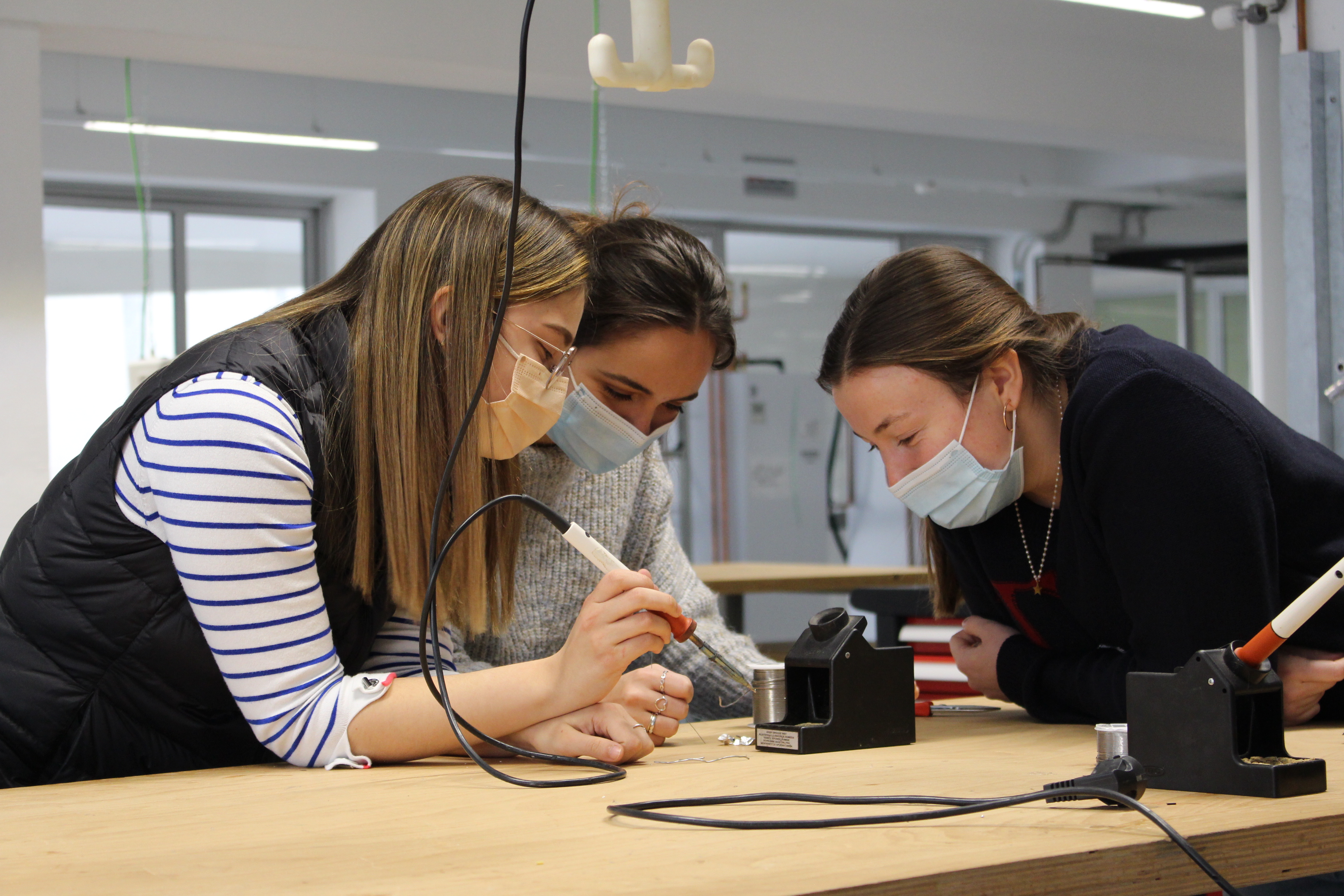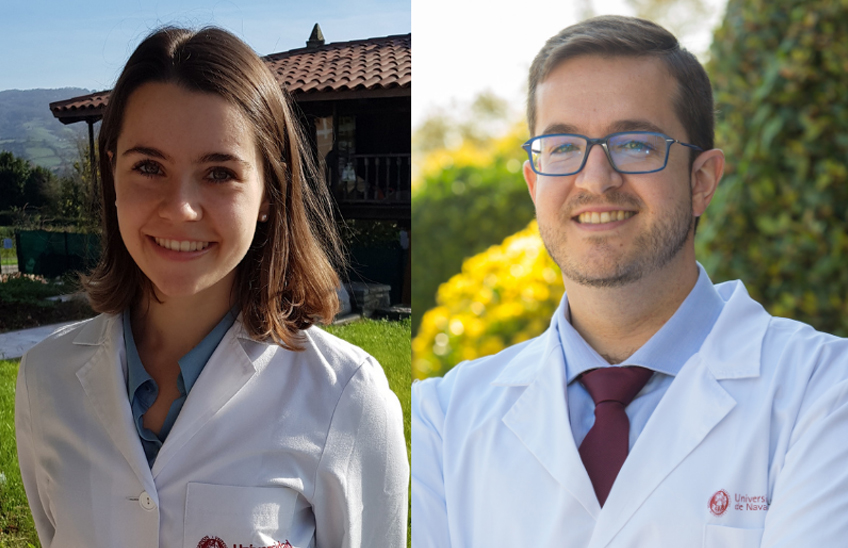“Gonzalo Herranz was a Pioneer who saw the importance of ethics in the training of doctors”
The University paid tribute to professor emeritus Gonzalo Herranz, a world reference for medical ethics who died last May
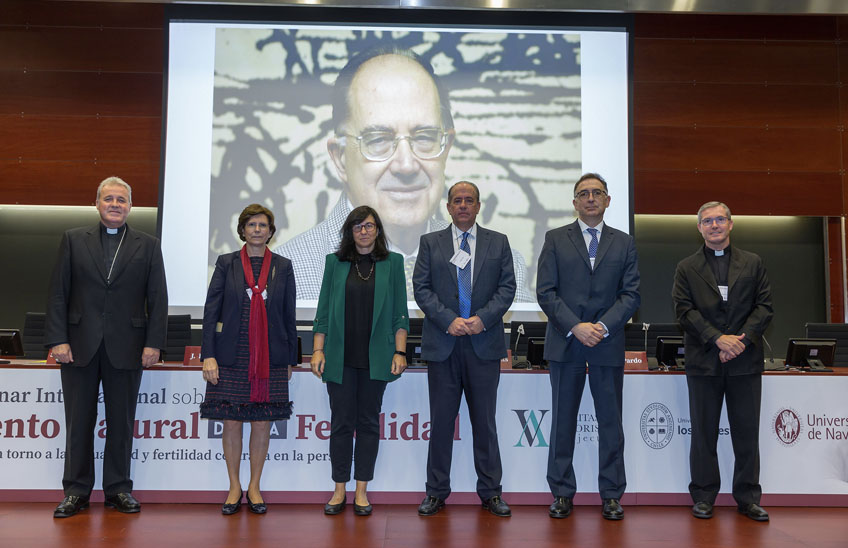
PhotoManuel Castells/From left to right, Mons. Mario Iceta, Pilar León-Sanz, Regina Cárdenas, Jokin De Irala, Secundino Fernández and José María Pardo, during the tribute to Professor Gonzalo Herranz.
23 | 09 | 2021
The University of Navarra today paid tribute to Professor Gonzalo Herranz, professor emeritus of the Department of Humanities and medical ethics who died last May. The ceremony, which took place during the International Symposium on Natural Fertility Recognition, was presided over by the Dean of Medicine, Secundino Fernández, Mons. Mario Iceta, former student of the University and doctoral candidate of Professor Herranz and Archbishop of Burgos and Dr Regina Cárdenas, gynecologist from the Clinica Universidad de Navarra.
“I got to know Dr Gonzalo when I came to study in the School of Medicine in 1980. He was the dean at that time and also my advisor. From the first day, I noticed his way of stimulating the mind, of always using surprise as a way of acquiring deep knowledge and of encouraging critical thinking” recalled Dr Fernández, current Dean of the School of Medicine. “We were all struck by the change he made in his career in 1987, when he left Histology and Pathological Anatomy to focus on Medical Ethics. He was a pioneer who knew how important this discipline would become in our profession".
Dr Herranz maintained a special relationship with the Archbishop of Burgos, Mons. Mario Iceta, whose doctoral thesis in bioethics he directed. “I remember how he managed to inspire in the 254 students in my class the importance that doctors followed clear ethical principles," he confessed. “He said to us, as doctoral students, that our thesis had to be like a bunker, solid work which no one could dismantle. He was passionate about study and scientific rigor and understood them as a service to society in the search for the truth".
Dr Regina Cárdenas, gynecologist in Clinica Universidad de Navarra in Madrid, presented a recent study she carried out in the field of gynecology, “Contraception from eco-ethical perspectives” which reflects the legacy of Professor Herranz:”I did not have the privilege of knowing him or learning from him, but every day I am more aware of the importance of his work in the field of Medical Ethics for today´s professionals”.
She explained how her research has led her to the concept of eco-ethics, a discipline that seeks to apply moral principles to the actions of human beings with respect to nature in order to create a harmonious relationship between the two. “Bio-ethics can be the language through which people of different sensibilities share the beauty and care of natural fertility”, referring to the theme of the International congress on Recognition of Natural Fertility which was held in the University with almost 3,000 participants from 62 countries, who attended in-person and online.
Reading between the lines: a critical history of contraception
Professor Herranz dedicated a good part of his research to the ethical aspects of the health profession, the place of biothetics in the medical curricula and other aspects including the value of the unborn, issue of euthanasia and hospital ethics. For this reason, during the ceremony his final book Leyendo entre líneas: una historia crítica de la anticoncepción, was presented by the three co-authors, Professors Pilar León, José María Pardo and Jokin de Irala.
"It is the finishing touch to the line of research that Don Gonzalo developed in the final years of his life: respect for human life", summarized Dr. León. “For five years, we studied the documents and sources that were referenced and we revised the drafts that Professor Herranz was writing”. She emphasized that "he was a wise man with an enormous capacity for study and synthesis," capable of rethinking the origin of contraception in the 20th century: "The key was his scientific rigor and a new way of doing bioethics that combined the analysis of the key facts with their interpretation," she recalled.
Professor José María Pardo, reviewed the development of another book, Desde el corazón de la Medicina, which reviews the career of Dr Gonzalo Herranz. “We would meet for an hour every week, he would talk and I would record. That´s how we spent several months from the end of 2011. In June of the following year, with all the material already transcribed, we met at the Colegio de Medicos of Navarra and from there we decided to start a project that resulted in the publication of this book. It was published by the Organización Médica Colegial and it was truly an act of justice for Dr. Herranz's enormous contribution to the training of physicians".

